Aquaporin

Torsten Bak,
Chief Technology Officer
More than 15 years’ experience from several corporate research & development positions and two start-ups. Specialist knowledge within various scientific areas, including molecular biology and fermentation optimization. Holds a Ph.D. in Biotechnology and an M.Sc. in Chemical Engineering from the Technical University of Denmark.

Alec Michels,
Membrane Development Specialist
I am born and raised in California. I have spent 11 years studying chemistry, biochemistry, and protein engineering in the US, Denmark, and Germany. My Ph.D. focused on protein engineering and site-specific modifications, after which I transitioned into the industry with a focus on protein production for assay components and biopharmaceuticals. At Aquaporin, I work at the interface of biochemistry, polymer chemistry, and membrane synthesis to develop a platform for delivering high quantities of active protein to our biomimetic membrane products. My focus is on membrane protein production optimization, protein stabilization, assay development, and final product qualification.

Karolis Norinkevicius,
Formulation Specialist
Broad experience in polymer chemistry and nanomaterials. Holds an M.Sc. in Polymer Engineering from the Technical University of Denmark. Completed an Industrial Ph.D. as part of a collaboration between Aquaporin A/S and the Technical University of Denmark with a focus on amphiphilic block copolymer synthesis. Currently works as a Formulation Specialist and leads the polymer synthesis efforts for the preparation of stabilized membrane protein carriers.

Türkan Ormanci Acar,
Formulation Specialist
More than 12 years’ experience in polymeric membrane development. Specialized in various membrane fabrication techniques and validation; especially thin-film composite membrane formulation, coating optimization and scaling up. Holds a Ph.D. and M.Sc. in Environmental Engineering on membrane fabrication and application from Istanbul University of Türkiye.
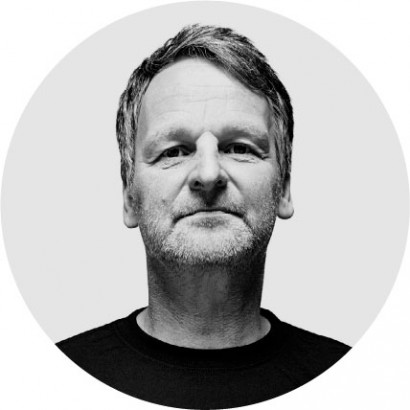
Hans Peter Smits,
Senior Fermentation Specialist
Surfing for more than 20 years on the waves of Danish Biotech in start-ups and young companies. Experienced in developing small- and large- (commercial) scale fermentation processes to produce food ingredients and proteins. Holds a Ph.D. in Biochemistry from the University of Amsterdam (The Netherlands) and an M.Sc. in Biology from the University of Utrecht (the Netherlands).

Martin Dam,
Laboratory Technician
I am a technician with 22 years of experience in testing and production of catalysator for air improvement by reducing NOx emissions (DeNOx-ing ) of flue gas, both for commercial and prototype.
I joined Aquaporin in September 2024 where I work with production of water filters and testing of prototypes . I like to build setups and finding solutions to problems
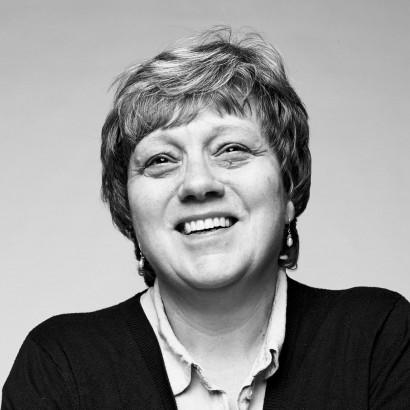
Heidi Birgitte Hansen,
Laboratory Technician
As Process Technician with a solid experience within Fermentation R&D, in Aquaporin I have been performing R&D and Upstream Production of the proteins, starting in 2017.
Since being transferred to Membrane Development, I participate in a range of coating experiments and production.

Magdalena Narewska,
Laboratory Technician
I am a Laboratory Technician in the Deep Tech department at Aquaporin, where I support the development of the next-generation filtration membranes. I hold a bachelor’s degree in food science and technology from Spain, and I am passionate about combining biology and innovation to create technologies that improve everyday life. I enjoy working hands-on in the lab, performing experiments, and seeing how scientific progress can make a real impact.
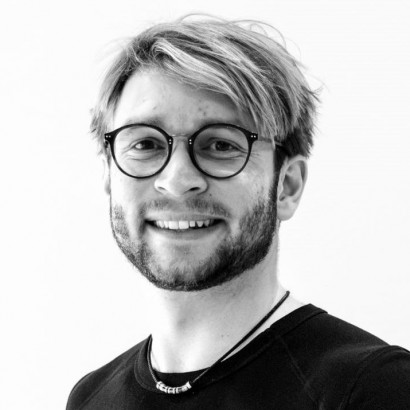
Jérôme Hetzel,
Membrane Specialist
Freshly graduated in Fall 2025 with a degree in Materials Science and Engineering from EPFL, Switzerland, I began my journey as a Membrane Scientist with the goal of continuously learning about membranes and applying the knowledge I developed during my studies. Biomimicry holds immense potential for the future, and my aim is to understand how materials themselves can be leveraged to optimize membrane performance. Bringing a new perspective to problem-solving can create valuable opportunities for innovation.
Aston
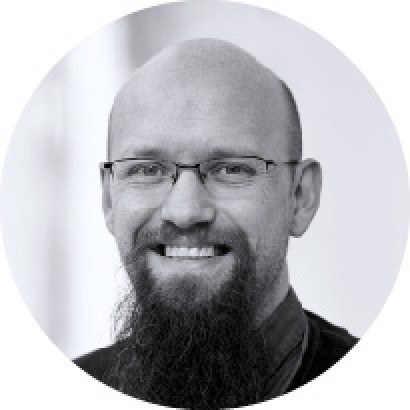
Alan Goddard
Alan obtained his BSc and PhD from the University of Warwick and then undertook two postdoctoral positions at the University of Oxford before taking up academic positions at the University of Lincoln and then at Aston University. He is currently a reader in biochemistry at Aston where he is interested in the roles that cell membrane, their individual components, and modulation of these, can play in improving biotechnological processes.
He is the Programme Coordinator for MemTrain, the co-director for Aston’s contribution to MIBTP and the Training Lead for the Aston Institute of Membrane Excellence (AIME).
Webpage: https://research.aston.ac.uk/en/persons/alan-goddard

Roslyn Bill
Roslyn Bill is Aston University’s 50th Anniversary Professor of Biotechnology in the College of Health and Life Sciences and co-Director of Aston Institute for Membrane Excellence, which is funded by a £10M grant from Research England. Roslyn obtained her Batchelor, Master and Doctoral degrees from Oxford University.
After a short period working as a clinical scientist at Addenbrooke’s Hospital, Cambridge, she undertook postdoctoral study at the University of Michigan as a Fulbright Scholar. She then moved to Gothenburg University to work with Stefan Hohmann before taking up a position at Aston University in 2002.
Roslyn is an authority on the synthesis and characterization recombinant membrane proteins for biochemical, biophysical and structural analysis. Her scientific focus is aquaporin water channels, G protein-coupled receptors and tetraspanins. Her early work on aquaporins investigated the microbial family members, yeast Fps1 and bacterial GlpF, and regulation by pore gating. In 2009, she led the multidisciplinary team that discovered a novel pathway in mammalian cells whereby a hypotonic stimulus directly induces intracellular calcium ion elevations through transient receptor potential channels, which triggers AQP sub-cellular relocalization via intracellular vesicles of the endocytic system. She has published a suite of articles describing this regulatory mechanism for human AQP1, 3, 4 and 5. Her team’s 2020 publication in Cell demonstrated this mechanism in vivo and provides the foundation for understanding the mechanistic basis of fluid homeostasis in the brain. Roslyn was awarded an ERC Advanced Grant in 2023.
She is a founding member of the aquaporin sub-committee of the IUPHAR/Guide to Pharmacology and Chief Scientific Officer of Estuar Pharmaceuticals. She is Chair of BBSRC Research Committee E and Executive Editor of BBA Biomembranes.

Paul Topham
Professor Paul D Topham joined the Chemical Engineering and Applied Chemistry subject group at Aston in August 2008 as a Lecturer in Chemistry, became a Senior Lecturer in August 2012, a Reader in Polymer Chemistry in August 2013 and a Full Professor in August 2017.
He is currently Co-Director of Aston Institute for Membrane Excellence (AIME) and the Head of School of Infrastructure and Sustainable Engineering.
Professor Topham’s research focuses on the synthesis, development and application of well-defined polymer systems, including “smart” polymers, biocompatible and biodegradable materials and tethered polymer brushes. Controlled polymerisation techniques are combined with synthetic organic chemistry to fabricate novel (co)polymers, which display varying phenomena, depending on the material itself and the environment in which it is placed. Characterisation techniques of their nanoscale behaviour involve x-ray scattering and neutron reflectivity amongst more traditional methods. Current research interests include microphase separation (polymer self-assembly), triggerable materials, sustainable polymers, biomaterials, electrospinning (nanofibrous fabrics) and membranes.
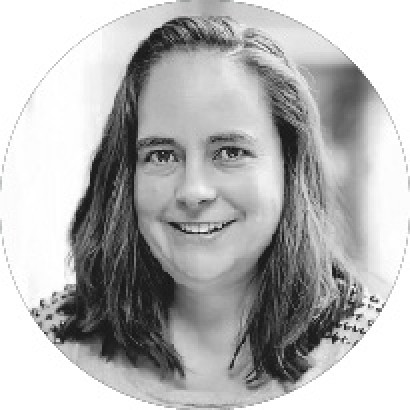
Alice Rothnie
Alice obtained her MBiochem and DPhil from the University of Oxford. She then undertook postdoctoral positions at Queen’s University, Kingston (ON, Canada) and the University of Warwick before taking up an academic position at Aston University, where she is currently a Reader in Biochemistry.
Her research interests lie in understanding the structure, function and mechanism of membrane proteins in health and disease. To enable this, she has played a large role in the development of the SMALP (styrene maleic acid lipid particle) technology for membrane protein extraction and purification. She is the Biosciences Director of Research and the Aston director of MIBTP.

Matthew Derry
Dr Matt Derry is a polymer scientist who leads a team that uses advanced polymer synthesis and self-assembly to develop functional, responsive polymeric materials for real-world applications with sustainability at the heart of their design, use and end-of-life.
Materials discovery is underpinned by fundamental characterisation to uncover true structure-property relationships and thus their full potential, particularly using synchrotron X-ray scattering.
He joined Aston in December 2019 as a Lecturer in Chemistry. Prior to this he studied for his MChem degree in Chemistry with a Year in Industry at the University of York in 2012. This was followed by an industrially funded PhD in Polymer Chemistry at the University of Sheffield (2016), where he continued as a Research Associate to study block copolymer self-assembly using X-ray scattering.
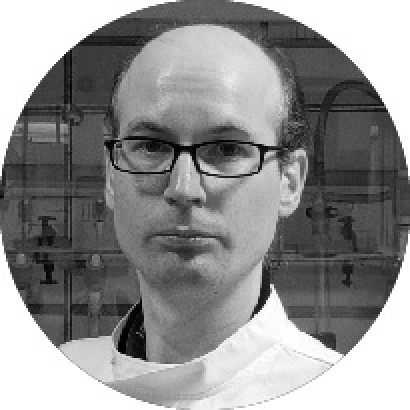
Luke Broadbent
Luke is a post-doctoral research associate at Aston University having earned a BSc in Biochemistry from the University of Wolverhampton, followed by a MRes in Molecular and Cellular Biology from the University of Birmingham. It was at Birmingham where he first developed an interest in protein purification and characterisation.
One of two research projects was concerned with the purification of DprE2, an enzyme in Mycobacterium tuberculosis responsible for the synthesis of arabinogalactan, a constituent of the cell wall. He obtained a PhD from Aston University, and his thesis was called “Structural characterisation of human tetraspanins and their interactions with cholesterol and gangliosides”. It was during his PhD that he was first introduced to the purification of membrane proteins when he purified the human tetraspanin, CD81. Since obtaining his PhD he has worked on the molecular docking of lipids to the human dopamine transporter and an interdisciplinary project synthesising functionalised styrene-maleic acid-based copolymers for membrane protein extraction.

Siriporn Chaimueangchuen (Snook)
Snook was born in Thailand and began her academic career at Chiang Mai University, where she earned her Bachelor's degree in Chemistry, focusing on the synthesis and preparation of injectable hydrogels based on stereocomplexed polylactide.
She advanced her expertise by pursuing a postgraduate degree in Polymer Science at the Petroleum and Petrochemical College, Chulalongkorn University, working on the molecular design of supramolecular molecules like [3]Pseudorotaxane. Her PhD in Polymer Chemistry at the University of Birmingham further refined her skills in DNA-polymer conjugation through low-volume polymerization-induced self-assembly (PISA).
Snook is now a postdoctoral researcher at Aston University, where she is mainly synthesizing and developing polymers for membrane proteins in the BIOMEM project.
DSM-Firmenich
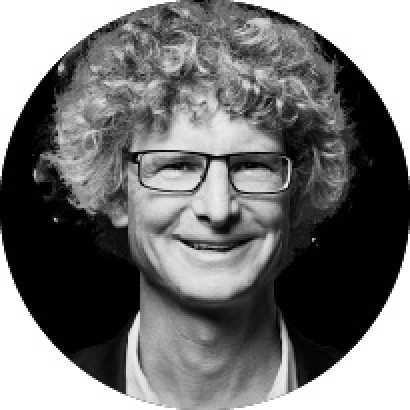
Niels Banke,
Head of HMO R&D
Educated biotech engineer and worked 34 years in the industrial biotech area at Novo Nordisk; Novozymes and Glycom / dsm-firmenich. Possessing > 13 international patents and gave presentations at different international conferences.
Main research area in biotech process development and process upscaling with microbial organisms (bacteria fungi and algae) for products reaching from API, enzymes, metabolites and for the last 8 years HMOs (Human Milk Oligosaccharides).

Ted Johanson,
Senior Scientist
Educated as a chemical engineer with a doctorate in applied microbiology. 10+ years’ work experience in industrial biotechnology at Glycom/dsm-firmenich with a focus on E. coli-based fermentation processes for the production of Human Milk Oligosaccharides. Author/co-author of 15+ scientific publications and 6+ patents.
Main research interest spans metabolic engineering of E. coli and S. cerevisiae, fermentation technology and how the interaction between genotype and process conditions affects microbial physiology and overall process performance.

Peter Becker,
Head of Upstream Technologies
With an educational background in biochemical engineering and 25 yrs of industrial experience in R&D within biopharmaceuticals and human nutrition, I am currently leading a department with responsibilities in strain development and fermentation.
My main research interest is focused around fermentation process development, physiology and scale-up/scale-down of microbial cell factories.
CNRS
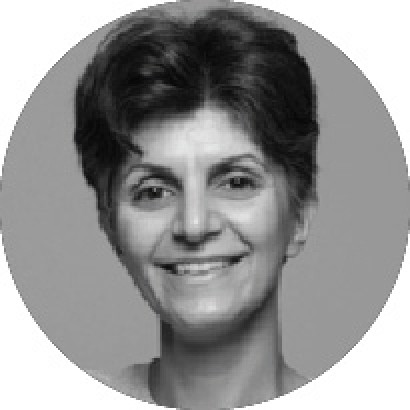
Mona Semsarilar
Mona Semsarilar earned her Ph.D. from the University of Sydney in 2010 where she worked on the modification of cellulose. She then moved to the University of Sheffield (UK) to work on polymerization induced self-assembly (PISA) with Prof. S. Armes (FRS). In 2015, she was recruited by the French National Research Organization (CNRS) as a research scientist based in the European Institute of Membranes (IEM) in Montpellier (France).
After obtaining her habilitation in 2019, she became a research director (DR, equivalent to Prof.) in 2023. Her research focuses on using synthetic chemistry and self-assembly to design material for environmental remediation.

Chaimaa Gomri ,
Researcher
Chaimaa Gomri is a researcher in chemistry and materials science specializing in polymer synthesis and membrane development for environmental remediation. She holds a Master’s degree in Quality and Water Treatment from the University of Poitiers and a PhD in Chemistry and Physico-Chemistry of Materials from the University of Montpellier. Her doctoral research focused on the synthesis and development of functionalized materials and advanced hybrid frameworks for water purification. Since July 2024, she has been conducting postdoctoral research within the BIOMEM project, where she designs biomimetic membranes for selective filtration.
Tampere University
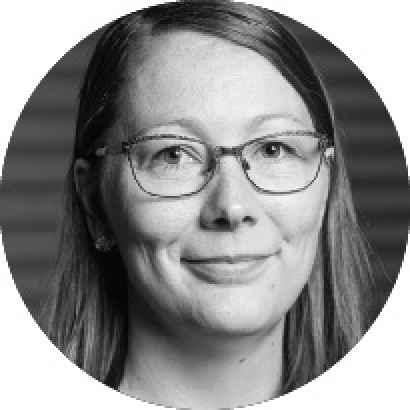
Marika Kokko
Read bio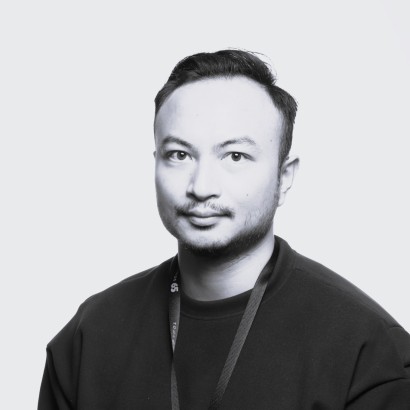
Zhenyu (Alexander) Zhao ,
Post Doctoral Researcher
Dr. Zhenyu (Alexander) Zhao earned his Ph.D. in Bio-science Engineering from KU Leuven (Belgium) in 2021, where his research focused on patterned membrane bioreactors for microalgae cultivation, harvesting, and biorefining. His postdoctoral career began at KU Leuven, developing patterned forward osmosis membranes for microalgae harvesting, before he moved to The Hong Kong Polytechnic University. There, he expanded his expertise to ion-exchange membranes for all-vanadium redox flow batteries and covalent-organic framework membranes for desalination and micropollutant removal. During this time, he co-founded a membrane technology startup, Hong Kong SuperSepa Technology Co.
Currently, Dr. Zhao is a postdoctoral researcher at Tampere University (Finland) under the supervision of Prof. Marika Kokko, where he is using biomimetic forward osmosis membranes for phosphorus recovery from waste streams.
University of Copenhagen

Jacob Kirkensgaard
Jacob Kirkensgaard obtained his PhD in Polymer Physics at the University of Copenhagen where he continued first as postdoc and then Associate Professor at the Niels Bohr Institute. He is currently in a joint professorship between physics and food science heading a research group focused on Structural Food Physics and Soft Matter Self-Assembly. He has combined expertise in coarse-grained molecular dynamics simulations and in structural investigations using small-angle x-ray and neutron scattering techniques. In BIOMEM he is heading the work package on Membrane Structure Dynamics.
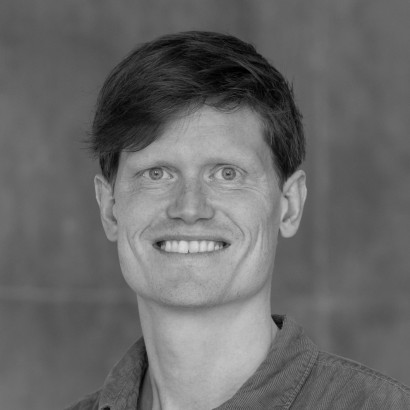
Andreas Haahr Larsen,
Assistant Professor
Andreas Larsen is a biophysicist with a PhD from University of Copenhagen, where he specialized in structural biology, focusing on X-ray and neutron scattering techniques. Following his doctoral studies, Andreas Larsen continued his research as a postdoctoral researcher at University of Oxford, where he used molecular simulations to explore transient protein-lipid interactions. In 2021 he returned to the University of Copenhagen as a postdoctoral researcher at the Department of Neuroscience, working with protein trafficking and signaling pathways, before joining the BioMem Team as an assistant professor.